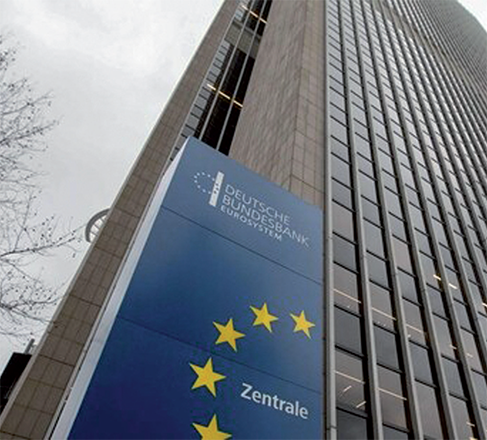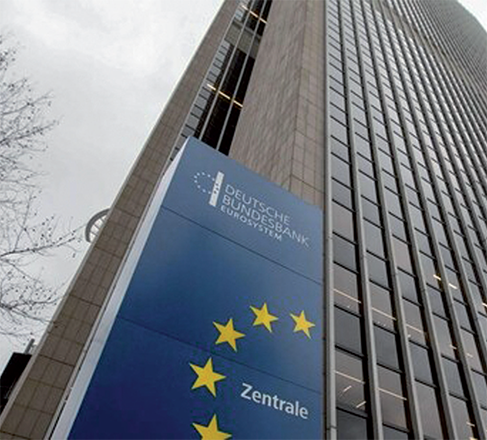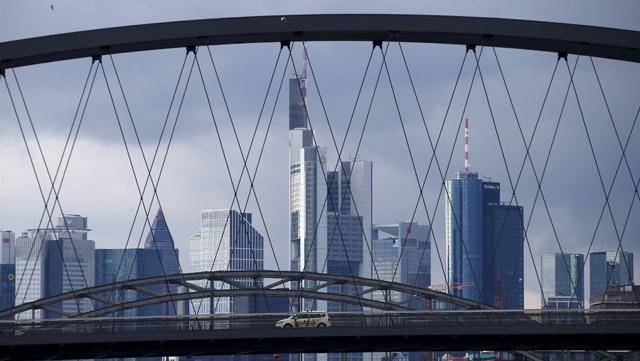You are here
No recovery yet for 'lacklustre' German economy, says Bundesbank
By AFP - Aug 22,2023 - Last updated at Aug 22,2023

The headquarters of the German Federal Bank (Deutsche Bundesbank Eurosystem) are pictured in Frankfurt am Main, western Germany (AFP file photo)
FRANKFURT — Germany's "lacklustre" economy will likely stagnate again in the third quarter, the Bundesbank central bank said Monday, as weak demand from abroad and high interest rates take their toll on Europe's industrial powerhouse.
After preliminary estimates suggested that the economy recorded zero growth in the second quarter of 2023, the outlook for the July-September period was not much better, the Bundesbank said in its monthly report.
"German economic output will probably remain largely unchanged again in the third quarter," it said.
Europe's largest economy is "still lacklustre" and "still experiencing a period of weakness", it added.
The gloomy outlook adds to concerns that Germany will drag down the eurozone's economic performance this year, with the International Monetary Fund predicting it will be the only major advanced economy to shrink in 2023.
National statistics agency Destatis will release final data for the second quarter on Friday.
The German economy shrank over the two preceding quarters, meeting the technical definition of a recession.
Germany's key industrial sector, traditionally a driver of growth, has been hit particularly hard in recent months as exports have plummeted against a backdrop of high inflation and subdued global activity.
Even though supply chain bottlenecks have eased, "industrial output looks set to remain weak", the report said, "as foreign demand has been on a downward trend of late".
While economic activity in the United States, a major trading partner, was in "comparatively good shape", the bank noted that key client China's post-COVID recovery had "quickly lost momentum".
Higher borrowing costs as a result of the European Central Bank's (ECB's) interest rate rises, aimed at bringing down inflation, will also continue to weigh on investment and the construction sector, the Bundesbank added.
On a brighter note, private consumption was likely to shore up the economy in the third quarter thanks to stable employment, higher wages and declining inflation.
Germany's annual inflation rate slowed to 6.2 per cent in July, mainly on the back of lower energy prices.
But wage pressures were likely to keep inflation above the ECB's two-percent target "for longer", the report said.
"Wage growth will probably remain strong, even going into the new year," it said.
Germany's leading economic institutes expect the economy to shrink by 0.2 to 0.4 per cent over the whole of 2023.
Related Articles
FRANKFURT — Two leading economic institutes cut their growth forecasts for Germany for next year, saying continued uncertainty and a budget
BERLIN — The Bundesbank said on Wednesday it expected the German economy to have grown gently in the second quarter of 2024, after a positiv
FRANKFURT am MAIN — Inflation in Europe's largest economy Germany fell back sharply in March, preliminary official data showed on Thursday,














